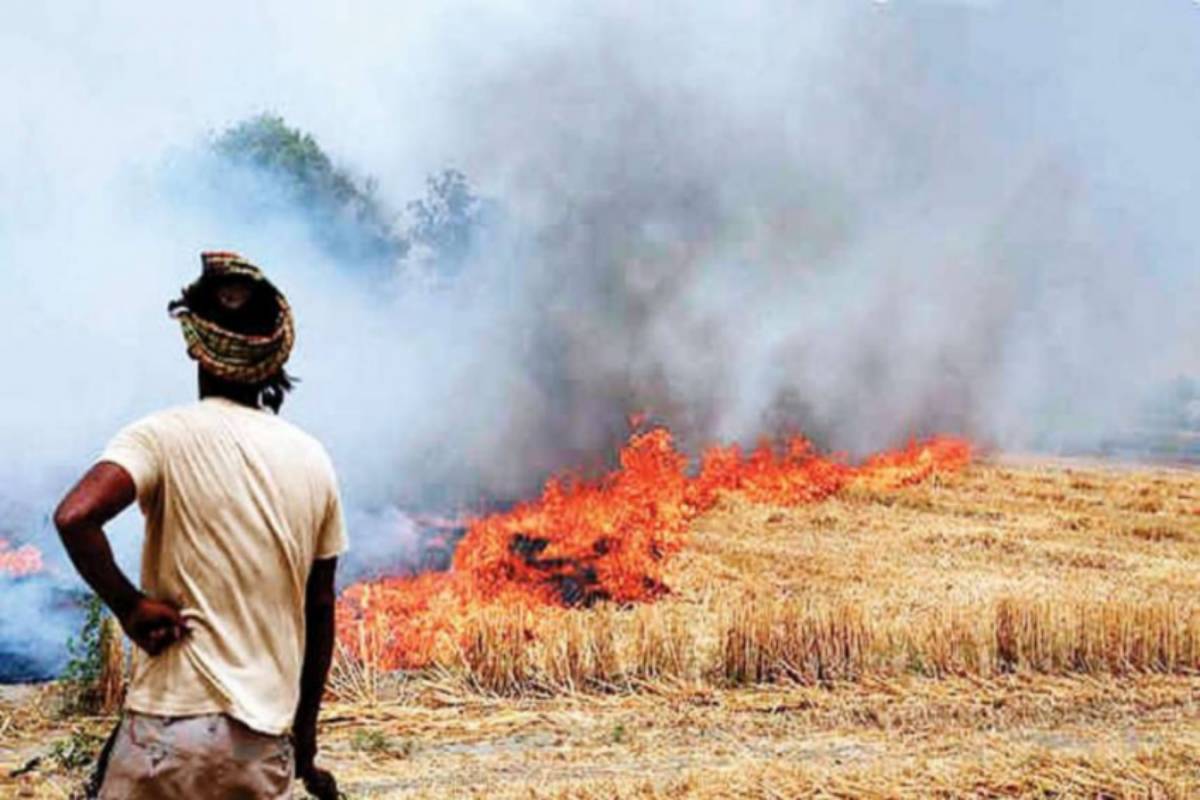Every woman is capable to create her own success story: UP CM
Uttar Pradesh Chief Minister Yogi Adityanath on Saturday said that every woman has the potential to create her own success story.
Stubble burning incidents in Uttar Pradesh have decreased by 46 per cent in the last seven years, thanks to the Yogi Adityanath- led BJP government’s strict policies and incentive-driven approach.

(Representational Photo)
Stubble burning incidents in Uttar Pradesh have decreased by 46 per cent in the last seven years, thanks to the Yogi Adityanath- led BJP government’s strict policies and incentive-driven approach. According to available data, stubble burning cases in the state fell from 8,784 in 2017 to 3,996 in 2023, marking a significant decline, officials said here on Wednesday.
The government’s initiative focused on educating farmers on the harmful effects of burning stubble and encouraging them to adopt composting or sow wheat directly into the stubble using seed drills.The awareness campaign for farmers continues this season, with the government also supplying 7.5 bio-decomposers for on-field stubble composting. One bottle of decomposer is sufficient to compost stubble in one acre of farmland. Additionally, the government has imposed a fine of Rs 15,000 for stubble burning.
Advertisement
Notably, by burning the straw, farmers not only damage their farms, but also harm their future crops. Burning destroys crucial nutrients such as nitrogen, phosphorus, and potash (NPK), along with billions of beneficial soil bacteria and fungi. Research shows that the leftover stalks contain 0.5% nitrogen, 0.6% phosphorus, and 1.5% potash. If these residues are composted in the field instead of being burned, the soil absorbs these nutrients, reducing the need for fertilizers by up to 25% for the next crop, officials said.This leads to lower farming costs and higher profits. Also, preserving organic elements in the soil helps protect the environment and reduces global warming.
Advertisement
A study by an organisation found that burning stubble in just one acre leads to the loss of 400 kg of valuable carbon, along with 10-40 crore beneficial bacteria and 1-2 lakh fungi per gram of soil. When crop residues cover the soil, they help maintain moisture, increasing the activity of microorganisms that provide essential nutrients for the next crop. This also boosts the soil’s water retention capacity, reducing irrigation costs and conserving water.To manage the stubble effectively, one needs to plough it deep into the field and irrigate. To speed up decomposition, one can spray 5 kg of urea per acre before irrigation. Specific cultures for decomposition are also available.
Advertisement